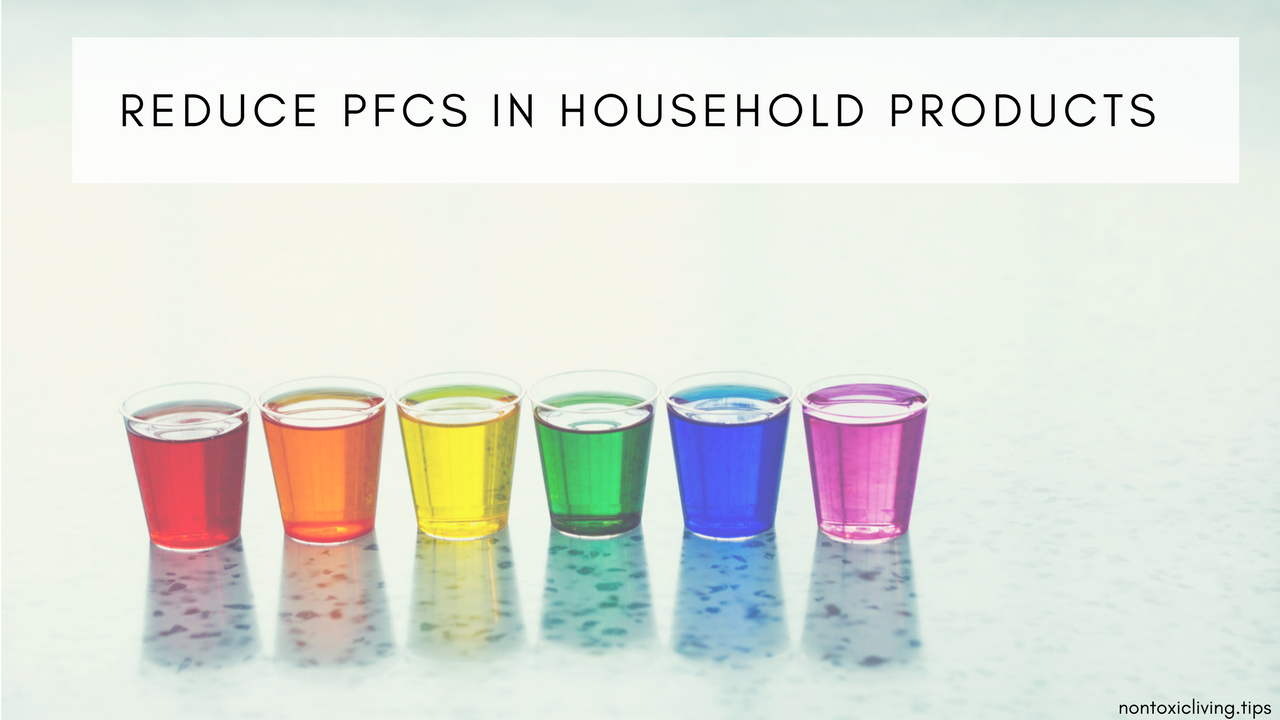
Phased Out PFCs Stick Around
Mar 12, 2018by Angela Cummings and Sophia Ruan Gushée
With chemicals that are banned or phased out, you expect them not to be a concern anymore, right?
The reality is: Chemicals, like PFCs, stick around for years, even decades—both in the environment and our bodies—which is ironic when you consider how PFCs are used.
What are PFCs and why are they still around?
PFCs, or perfluorochemicals, are a large group of chemicals that have many names. Two common examples are perfluorooctanoic acid (PFOA) and perfluorooctane sulfonate (PFOS). PFOAs are in the process of being phased out, and PFOS is no longer manufactured in the U.S. However, its presence still remains.
PFOS, along with other types of PFCs, are slow to breakdown if at all. Some PFCs don’t breakdown. (1)
What are the effects on human health?
PFCs can affect endocrine activity, immune system function, organ damage, and developmental problems. (2) PFCs are not stored in body fat, but they can still take years to leave the body.
The Center for Disease Control has found (3):
- PFCs were in nearly all people tested (since 1999)
- 12 types of PFCs were found in the blood of children and adults 12 years of age and older
5 Common Household Products Where PFCs are Found
PFCs are used to create stain resistance, water resistance and grease resistance. They are also used to create non-stick or reduced friction products. (4)
What would products with PFCs look like in your home?
- stain resistant furniture, drapes or textiles
- water resistant carpeting
- nonstick cookware, including pans, baking sheets, and utensils
- waterproof mattresses
- food packaging such as microwave popcorn bags, pizza boxes, hamburger wrappers, and packaging for greasy foods
Tips for Reducing PFC Exposure
- Skip the stain resistant finishes. When asked if you’d like stain resistant finishes added, say no thank you. If you see “stain resistant” labels on furniture, drapes, carpeting and other household items, find an alternative product that is not stain resistant.
- Waive water resistance. Some products are water resistant due to the product material, and some are water resistant due to added chemical finishes. When you have the option, waive the option to add a water resistant chemical finish. Avoid textiles labeled or marketed as water resistant.
- Choose cookware without nonstick finishes. Before the days of nonstick finishes, cookware (such as pots and pans, cookie baking sheets, and cooking utensils) didn’t have added chemical finishes that made food slide right off. These chemical-free cookware options are still widely available today! The little extra effort to scrape or soak a pan may be worth the time.
- Cook greasy foods at home. Greasy foods are not the healthiest of food options, but who can deny a good greasy burger now and then. Avoid food packaging and wrappers used for greasy foods. Eat greasy foods at sit-down restaurants (with no to-go-box), or cook them at home to avoid wrappers that may contain PFCs.
- Consider natural rubber mattresses. Natural rubber mattresses have good moisture regulation and may be helpful in providing natural water resistant properties without the added chemicals.
PFCs have been found in nearly every person tested since 1999. These chemicals may contribute to organ damage and disrupt biological systems.
While some types of PFCs are being banned or phased out in the U.S., their presence remains in our environment and bodies. Common places where PFCs can be found include products that are stain-resistant, water-resistant, non-stick surfaces, and food wrappers.
- Reduce your exposure to PFCs by avoiding textiles and products that are labeled stain- or water-resistant. If companies offer to add stain or water protective coatings, say no thank you.
- Cook greasy foods at home or at a dine-in restaurant in order to avoid food packaging that can contain PFCs.
- Consider choosing cookware without nonstick finishes.
References
(1)(3) Center for Disease Control
Stay connected with nontoxic lifestyle news and updates!
Receive our free Ruan Living Nontoxic Cleaning Guide when you join our email list.
Don't worry, your information will not be shared.
We hate SPAM. We will never sell your information, for any reason.







